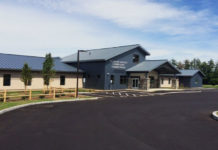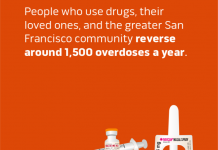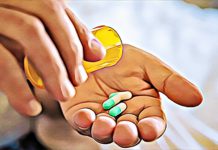A drug and alcohol recovery center recently opened in Tampa, Florida to help people struggling with substance use disorders in Hillsborough County.
WhiteSands Treatment will open their second drug and alcohol recovery center in the Tampa area after the demand for addiction treatment has risen.
When a patient enters the drug and alcohol recovery facility, they go through a steinious intake process. The substance abuse treatment plans are designed to address each patient’s specific needs.
WhiteSands provides numerous addiction programs including medical detox, inpatient and outpatient rehab, partial hospitalization, family therapy, alternative treatment, intervention, dual diagnosis treatment and relapse prevention.
Relapse prevention is a plan that WhiteSands implements to help patients stave off drug or alcohol cravings once they have gone through the detox process. The focus of this relapse prevention plan is to help the patient maintain long-term sobriety.
WhiteSands applies an addiction treatment plan that can be tailored toward each person’s individual needs. Some of their addiction treatment options include a 12-step fellowship, residential treatment, peer support groups, holistic approaches and group and individual counseling.
The drug and alcohol recovery facility also has some specialty therapies that may be assigned to patients depending on the level of their addiction. These include motivation therapy, contingency management, cognitive behavioral therapy, rational emotive behavior therapy, dialectical behavior therapy and family therapy.
The length of these addiction treatment programs range between one to three months, depending on a patient’s needs.
The substance abuse treatment center is attempting to curb the drug epidemic occurring in Tampa.
Preliminary reports from January to June of 2017 indicated that there were 24 drug-related deaths that included fentanyl and 51 that involved cocaine in Tampa, according to the Florida Medical Examiners 2017 Commission Report.
Cocaine addiction is one of the disorders that WhiteSands treats at their drug and alcohol recovery facility. Cocaine and alcohol are among the most abused substances in Florida by both adults and adolescents.
According to 2017 data from the National Institute on Drug Abuse (NIDA), 4.2 percent of 12th grade students in the U.S. reported doing cocaine in their lifetime — 2.7 percent of them reported using cocaine within the past year while 1.2 percent stated they had used it within the past month.
The data from NIDA also specified that 61.5 percent of 12th grade students consumed alcohol in their lifetime, 55.7 percent indicated that they drank alcohol within the past year and 33.2 percent stated that they had drank alcohol in the last month.
The Hillsborough County Anti Drug Alliance (HCADA) is a nonprofit established in 1989 that has over 200 volunteers who work to reduce the effects of substance use disorders throughout the county. They build strategies to help curb drug use with youth education and collaborations with the community.
One of their organizations is the Tampa Alcohol Coalition, a community of over 100 people that are attempting to stop underage drinking in the county.
The Prescription Drug Abuse Task Force is another group that helps the HCADA promote awareness about the dangers of substance use. Their goals include reducing the increasing number of issues linked to prescription drug abuse in the region.
Youth Making a Difference in Hillsborough County (YMAD) is a task force designed to help kids learn the dangers of substance abuse. There is a three step process that YMAD puts forth when educating youths about drug use.
Youths are trained on the consequences and the risk of substance use, media influences, advertisements and pop culture. They are also given skill training in public speaking, problem assessment and analysis as well as community organization. The youths then get the opportunity to formulate their own events to educate their peers on the dangers of substance use.

















